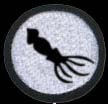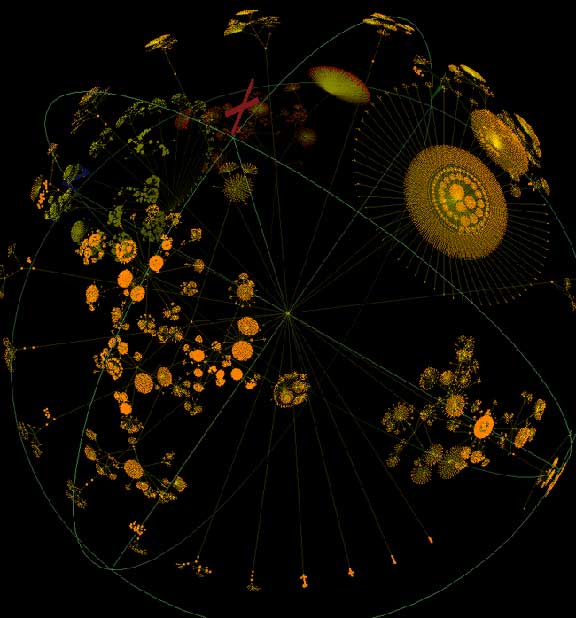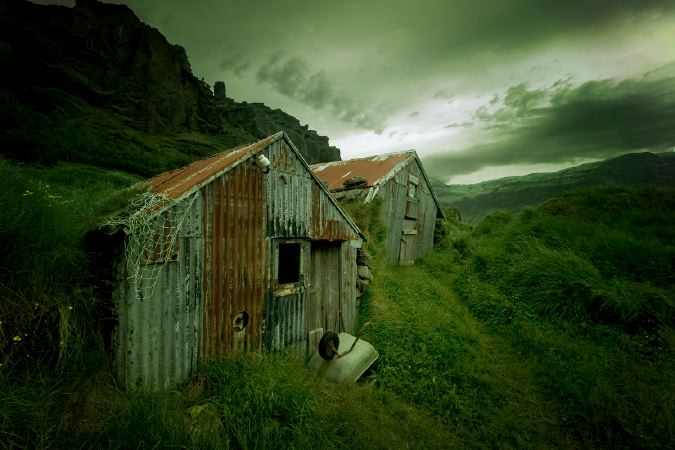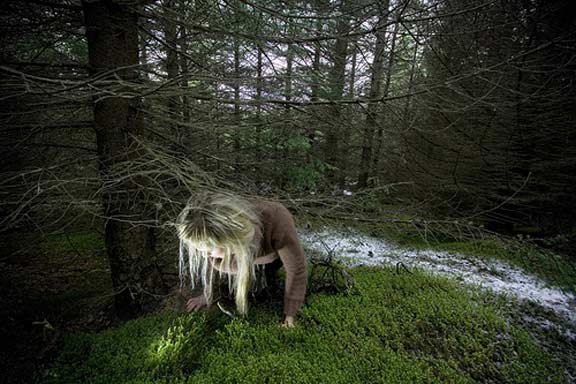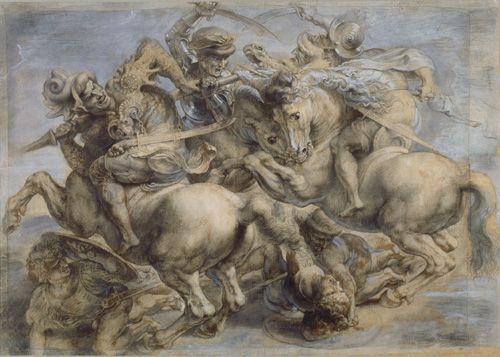Let’s be honest: biologists sometimes get a little intoxicated by the beauty of the natural world. My friends know I will break off mid-conversation to crawl into the brush, mesmerized by a snake or a liverwort. My good china is full of dead insects, and my freezer is packed with unlucky birds. I collect things. To be surrounded by those wonders on a daily basis, to unpack and unravel and discover them, is to be constantly at play. Becoming a biologist is the perfect excuse to never grow up.
My favorite “biology poem,” by Atlantic Monthly poetry editor David Barber, perfectly captures that playful wonder. It’s from his latest, phenomenally diverse book, fittingly titled Wonder Cabinet. I’ve been carrying it with me all winter, and can’t recommend it highly enough. This book is a real Wonder Cabinet.
Pam at Phantasmaphile recently noted the unfortunate proliferation of self-declared “Wonder Cabinets” that are basically random juxtapositions of objects. The original wonder cabinets (or wunderkammeren, or cabinets of curiosities), were somewhat haphazard – they predated modern scientific taxonomies, freely mixing natural specimens with artificial objects of interest; their contents reflected the eccentric tastes of individual collectors. But above all, a wonder cabinet was the world in microcosm: what Francis Bacon described as “a small compass, a model of the universe made private.” They weren’t just accumulated stuff; they were windows into unprecedented geographic and scientific vistas. Today, it’s difficult to imagine the awe an authentic wonder cabinet must have evoked. Many scientists disapproved of wunderkammer fever: according to Descartes, “What we commonly call being astonished is an excess of wonder that can never be otherwise than bad.”
Descartes, for all his contributions to neuroscience, was clearly not my kind of biologist. Biology is all about excess – often quite messy excess. Wonder cabinets were just loosely edited selections from the excessive complexity of Nature. Furthermore, a cabinet provoked novel connections between collected artifacts and the remembered artifacts of the viewer’s experience. Within a wonder cabinet, there’s no single, prescribed path of analysis, but an excess of intuitive possibilities. It’s a cabinet of curiosity, a cabinet of questions, not answers. And that’s also very close to my personal definition of a successful poem.
To make sense of the unfamiliar, the astonishing, the messy, we resort to history and language; definitions and names; systems of organizing and explaining the evidence before us. In Wonder Cabinet, David Barber considers all of these things: excess of wonder (“Thumbnail Sketch of the Tulipmania”), the personal wonder that moves the scientist (“Ode to William Wells”), wonderful names (“Chimerical”, “Aphrodite’s Mousetrap”). It’s a pleasure to see my own inarticulate instincts about the delight and wonder of biology expressed so well. It would be a guilty pleasure, if it weren’t such good poetry.
“Pilgrim’s Progress”
David Barber, Wonder CabinetThe fin is the finest thing of its kind.
The wing’s a wonder the world over.
The tongue is a form of eternal flame.
The stone’s a story that never grows old.O fin, it’s certain you want for nothing.
Yo wing, you’re everything we’ve ever dreamed.
You said it, tongue: of arms and men you sing.
Here’s looking at you, stone: a star is born.Who doesn’t burn for a soul on the wing?
Where is the man that can fine-tune the fin?
When shall we learn to read the mind of the stone?
What in the world holds its own like the tongue?Stone says fin’s the one that schooled the wing.
Story goes one singer could charm the stones.
Rock, paper, scissors; worlds without end.
One slip of the tongue makes the whole world kin.All together now: the many in the one.
Brush fire of fins stirring the fathoms,
Cairns of lost tongues, the chorus in the wings
Riffing on the omens of the heavens.Soul knows it can’t live on breath alone.
When the tongue wags the dog, the fur’s gonna fly.
The stone is a kind of recording angel.
The wing’s got the beat. The fin makes waves.Wing it, mother tongue: the world’s your whetstone.
We’re wired for sound. We’re unfinished business.
Let’s hear it for the phoenix, all fired up.
Sirens, rock us to sleep with the fishes.Let’s hear it for descent with variations.
Let him without fin go back to the grindstone.
The bat is the manta ray’s soul brother.
The dolphin’s glossolalia speaks volumes.Hosannas for sea changes, the wish made flesh.
As the silkworm turns, as the chrysalis
Is my witness, leviathan’s no fluke.
Blood from a stone is a thing to behold.Blow me down with a feather, fishers of men;
Rock of ages, take me under your wing.
Muse, make it new: leave no tongue untuned.
Rock my world, winged gods: begin again.
Atlantic Monthly interview with David Barber (if you are a subscriber, this poem is available as an audio file on their site)
Cruelest Month interview with David Barber
Other poems from Wonder Cabinet: “Shades of Alexandria” and “To the Trespasser”
Many thanks to David Barber for granting permission to share this poem with my readers.


